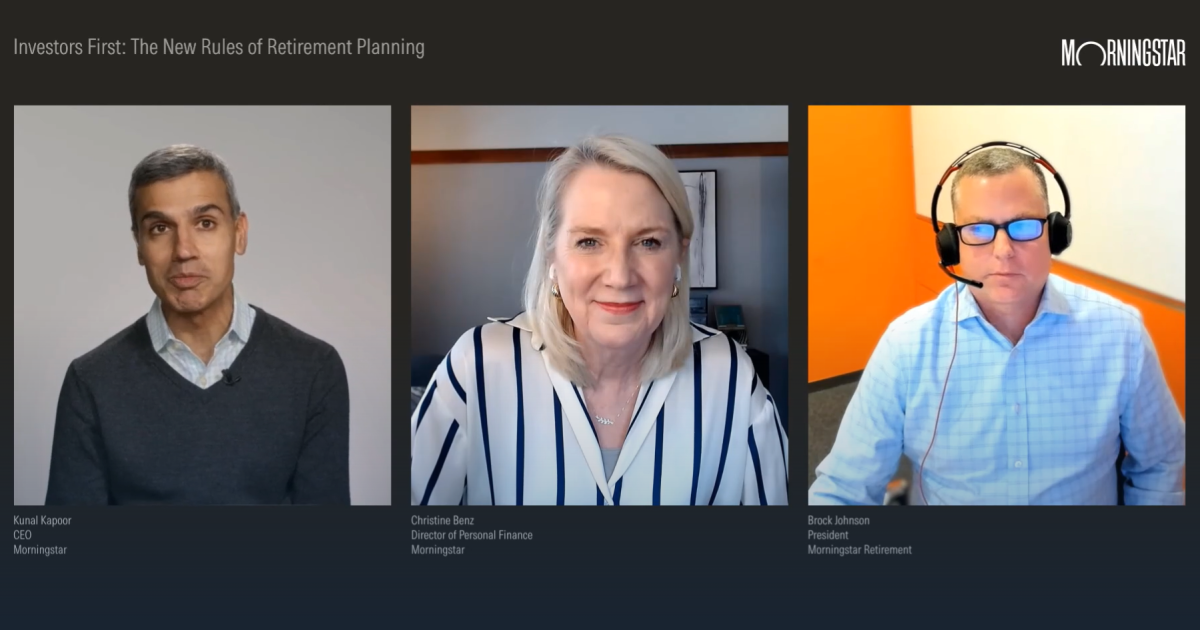Estate planning for heirs’ property could help families preserve and pass down hundreds of billions of dollars in assets, but “tangled titles” are putting that generational wealth at risk.
That problem — joint or complex ownership land and housing across dozens or even hundreds of descendants of titleholders who died without a will — requires estate planning encompassing the work of many different financial and legal fields, according to a discussion held last month by the nonprofit Urban Institute and sponsored by JPMorgan Chase. The event drew more than 500 registered virtual and in-person attendees to panels with leaders from wealth management, law, the Fed, nonprofits, academia and financial technology firms.
Many of the experts who spoke at the event in Washington, D.C. have been working on the challenges of heirs’ property and tangled titles for a decade or more. But those difficulties may sound new to many financial advisors and other wealth management professionals. In some but not all states, land speculators and other investors may force a court-ordered sale of the inherited property by striking an agreement with one or a small number of the stakeholders, known as co-tenants or tenants-in-common. At least 25 red and blue states plus D.C. have passed a model law that enshrines some protection for those land or residential assets for the owners’ families. However, the risk of losing inherited land or housing remains pervasive and complex. Any number of state, local or federal policies may affect the transfers. And a legacy of distrust remains connected to the racial wealth gap and historical practices like sharecropping and residential segregation. Addressing the risks means finding documentation of the ownership and a lot of other complicated estate planning.
“We’re committed to helping more people access the benefits of homeownership and overcome the barriers that stand in the way of building wealth. Heirs’ property is a significant barrier,” said Joanna Trotter, an executive director and senior program officer with the Corporate Responsibility division of JPMorgan Chase. “We’re seeing situations where this happens in perpetuity through families, through generations.”
READ MORE: Advisors clamor for estate planning tools as attorneys wave red flags
New research
Calculating the scale of the risk is tough: Documentation is often missing, and it’s common for some heirs’ property owners to not even be aware that they are one. Past Urban Institute research has suggested that tangled titles amount to $243 billion in housing wealth that is in jeopardy among homeowners who are aged 50 or older, according to a report issued by the nonprofit organization the day of the event. With many Americans in general lacking wills and estate plans — a problem especially pervasive for Black and Hispanic homeowners — tangled titles highlight the need for better access to affordable estate planning services and technology and greater awareness of their importance, the report said. But that, in turn, presents another hurdle to generational wealth, according to the authors, Michael Neal, Matthew Pruitt, John Walsh and Amalie Zinn.
“Homeownership is a key source of wealth among older households, particularly households of color,” they wrote. “Many homeowners hope to pass their wealth to the next generation. But lacking an estate plan such as a will or a trust can result in fractional ownership, which could limit homeownership’s benefits among those who have inherited the property. And homeowners at risk of tangled titles often have fewer financial resources to pay for financial and legal services to properly transfer their property. Technology represents an opportunity to reduce estate planning costs while efficiently reaching scale. But the families most at risk of tangled titles are often the ones who are less likely to have sufficient internet and technological access. Policies that increase affordability or expand computer and internet access can level the playing field and ensure homeowners preserve their wealth.”
Property owners without a will were “highly unlikely” to have more than $500 in financial assets, which would make it even more improbable that they could afford the necessary estate planning, Neal, a senior fellow and practice area lead with the Institute’s Housing Finance Policy Center, said in one of the panels at the event.
“That to me was really important, in terms of informing the response to those that might not have a will, that it’s more than just, ‘Well, go get one,’ or, ‘Go off and find a lawyer or someone to help you,’ given the financial constraints that they had,” Neal said. “I think that it also speaks to potentially more research in this area, that the risk of tangled title, at least starting with the lack of a will or the lack of an estate plan really can reflect more systematic challenges that might be at play.”
Other panelists highlighted additional aspects of the dilemmas facing many families and financial professionals seeking to guide them through their heirs’ property with an eye toward preserving that generational wealth.
Scroll down the page for some of their insights, or view the full video of the event on YouTube or through the Urban Institute’s website. To see Financial Planning’s award-winning series on how pro bono professionals in St. Louis are seeking to build and preserve wealth in a rapidly gentrifying area of the city, click here.
Urban Institute
From the panels: The problems
In the mid-1990s, about 70% of households had a will, according to Jean-Pierre “JP” Aubry, the associate director of retirement plans and finance with the Center for Retirement Research of Boston College. Now the number is closer to 60%, he noted. “We come at this from an angle of retirement wealth, the importance of building wealth to pass onto the next generation, to finance expenses in retirement,” Aubry said. “And so when we think about tangled titles, we think about the house and we think about wills.”Karama Neal, a former U.S. Department of Agriculture official who advises families and institutions as the principal consultant and mediator with the Neal Firm and a strategic project director for heirs’ property with the Asset Funders Network, recalled her family’s story that her great-great-grandfather was told that he needed to die without a will to leave his family’s land in Arkansas to his descendants. Those educational problems persist today, sometimes by owners without wills and, in some cases, by those who believe their estate plan is complete after getting one. “You have to know what to do with a will,” she said. “You have to make sure that, not only do you know what to do, that your heirs, your executors know what to do, that they have the money to deal with it. Wills can be costly to probate. It can be costly to hire an attorney.”Other blockades come in the form of some people’s notion that their assets, say, $50,000 in a bank account and a home, don’t count as an estate, said Adam Frank, a managing director and the head of wealth planning and advice with J.P. Morgan Wealth Management. Instead, they view properties like Batman’s Wayne Manor as the type of asset that fits that description. Other people just don’t have enough information or the means to do estate planning. “Those are the biggest barriers,” he said. “A lot of it is the traditional ones of cost and trust in the system and so forth, but just the practicalities and the administrative perseverance that’s required to actually follow through and go from the beginning, which is somebody’s dying, to end, which is having a deed registered in the names of the new owners, often doesn’t happen. And I think that’s problematic and, I think, much more difficult to overcome.” The owners “really do need multigenerational planning,” and that could act as a “gateway into more comprehensive planning,” said Mavis Gragg, a lawyer who is the CEO and co-founder of HeirShares, a think tank and online learning service researching heirs’ property on behalf of families, attorneys and other clients. She shared the story of why she and the other founders launched the firm, which she said is the first for-profit company mapping heirs’ property data. “I grew very frustrated with the fact that, while I’m educating folks about having succession plans, having an entity-centered model for owning their real estate, many of them would come to me for succession planning services, but we don’t have any proof of who owns the property that they are coming to plan for, meaning that the ownership of their property was passing from person to person or family members to family members through inheritance,” she said.

Urban Institute
Potential solutions for tangled titles
Philadelphia has taken many important steps in identifying heirs’ property and providing public-private funding that is boosting the collaboration required to preserve the wealth, according to Abraham Reyes Pardo, the vice president of the Office of Housing and Diversion Services at the Urban League of Greater Philadelphia, where he leads homeownership education and support programs. But old and, since 1948, illegal exclusionary segregation provisions in deeds continue to impede the work, he said. “Race covenants have created a tradition of disengagement, of miseducation or failed education opportunities where African Americans, Jews, Asian Americans were excluded from owning property, inheriting property in certain sections of the city,” Reyes Pardo said. “There’s still a tradition of people who distrust the system. So what we are doing is, we are educating and reeducating the community by meeting them where they are.”In Jacksonville, Florida, the Local Initiatives Support Corporation Jacksonville, a nonprofit organization focused on building “resilient and inclusive communities of opportunity,” has compiled data on current or potential future heirs’ property to guide policymakers, nonprofits and other professionals seeking to assist them in preserving the wealth, according to Kristopher Smith, the organization’s senior community development program officer. “This issue is layered, and so legal support is necessary,” Smith said. “We’ve had great partnerships with our local Legal Aid office, but we’ve also worked with our housing counseling agencies. We’ve worked with our local government and we’ve worked with philanthropy to help identify non-extractive financial tools such as tax relief that can help folks make good decisions, even in the midst of a challenging moment.”The Uniform Partition of Heirs Property Act gives property owners “enhanced due process and private property rights” aimed at avoiding “the dispossession of their property through forced sale,” said Keeva Terry, a professor of law at the Howard University School of Law, where she teaches courses on wills, trusts and estates, taxes and contracts. The law calls for full market-value appraisals in advance of any potential sale, along with other procedures such as dividing properties so that one co-tenant could sell part of a land asset without others needing to do so. “The UPHPA now says the co-tenant who would like to sell their share must provide notice to the other co-tenants,” Terry said. “And that notice allows the other co-tenants the opportunity to buy out that co-tenant who wants to sell, time to make the decision about whether to buy out their interest and time to secure financing to buy out their interest. And that’s a way to preserve that property within the family and to maintain that intergenerational wealth.”The majority of U.S. adults don’t have an estate plan, which signals that they are “operating unbanked, in regards to the largest financial transaction of their life,” said Brantley Boyett, the president and co-founder of Giving Docs, a financial technology company that works with nonprofit organizations that provide members and donors with wills, estate planning and legacy gifts. His company and its collaborators are helping them navigate a patchwork of state rules about online estate plans and notaries. “One of the things that I’ve been really hopeful about since we’ve started is that we would have an end-to-end solution for creating an estate plan that was signed and notarized,” he said. “I figured it would only be a couple of years.” Part of filling the void in estate planning even includes ensuring that homeowners get aid that they may need to repair their properties, according to Chris Garland, a community development manager with the National Community Stabilization Trust, a nonprofit launched after the financial crisis to boost affordable homeownership opportunities. He cited the success of some recent sessions led by Sarah Stein, a senior advisor on affordable housing and neighborhood stabilization with the Atlanta Fed, with his organizations and nonprofit collaborators in Baltimore, Atlanta and Birmingham, Alabama. “We were able to see if there were actual handicaps in place that would prevent a potential family from taking part in a home repair program that really was designed to support them in the first place — that kind of armament, that kind of knowledge that we really lean into with this program,” Garland said. “There’s work that’s happening all around the country, and we really think that there can be more of that that we can help support.”




























